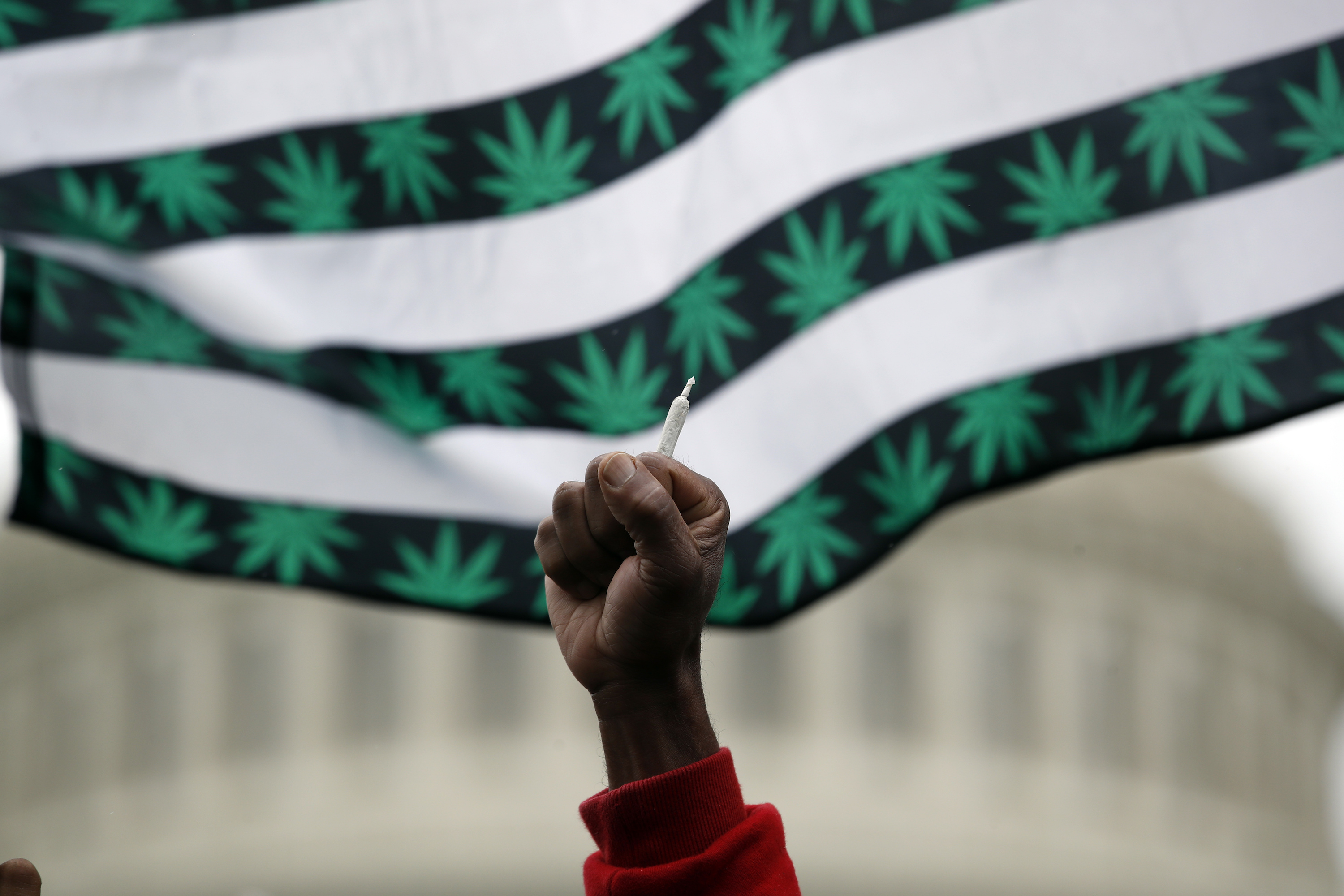The United States is gradually becoming the land of the red, white, and green.
Michigan on Tuesday became the tenth state to legalize marijuana after voters passed Proposition 1, making it the first Midwestern state to legalize the drug.
Four states voted on marijuana legalization measures in Tuesday’s midterm elections. Voters in Utah and Missouri also passed initiatives to legalize medical marijuana, though an initiative in North Dakota failed.
Marijuana legalization is sweeping the US: In June, Oklahoma voted to legalize medical marijuana, joining the number of other states that already have medical marijuana laws on the books.
In January, Vermont became the first state to legalize marijuana through the legislature, rather than a ballot initiative, when the governor signed the bill into law.
Support for the drug reached new highs in 2018. A Gallup poll showed that 64% of Americans favor legalization, and even a majority of Republicans back it.
Ten states and Washington, DC have now legalized marijuana for recreational use for adults over the age of 21. And 33 states have legalized medical marijuana.
Here's a summary of where Americans can legally light up - no doctor's letter required - in 2018.
Read more: Top cannabis VCs give their best advice on how to invest in the booming marijuana industry
Alaska
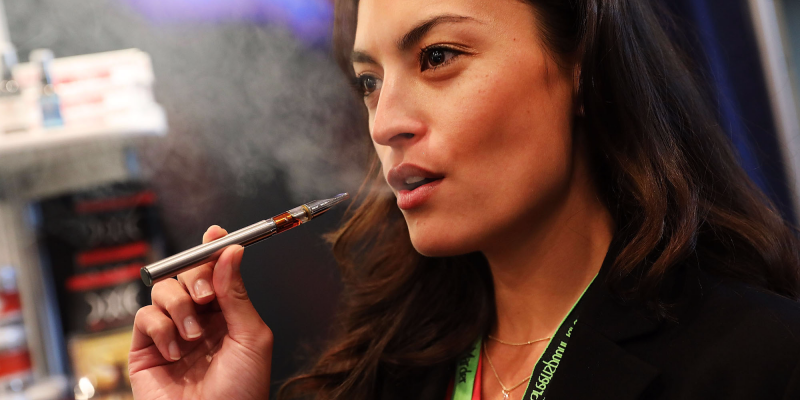
Adults 21 and over can light up in Alaska. In early 2015, the northernmost US state made it legal for residents to use, possess, and transport up to an ounce of marijuana - roughly a sandwich bag full - for recreational use. The first pot shop opened for business in late 2016.
Alaska has pounced on the opportunity to make its recreational pot shops a destination for tourists. More than two million people visit Alaska annually and spend $2 billion.
California

It was the first state to legalize medical marijuana back in 1996. California became even more pot-friendly in 2016 when it made it legal to use and carry up to an ounce of marijuana.
The law also permits adults 21 and over to buy up to eight grams of marijuana concentrates, which are found in edibles, and grow no more than six marijuana plants per household.
But not all Californians can legally smoke marijuana, depending on where they live. Many cities in the Central Valley, including Fresno and Bakersfield, have moved to ban recreational sales.
Colorado
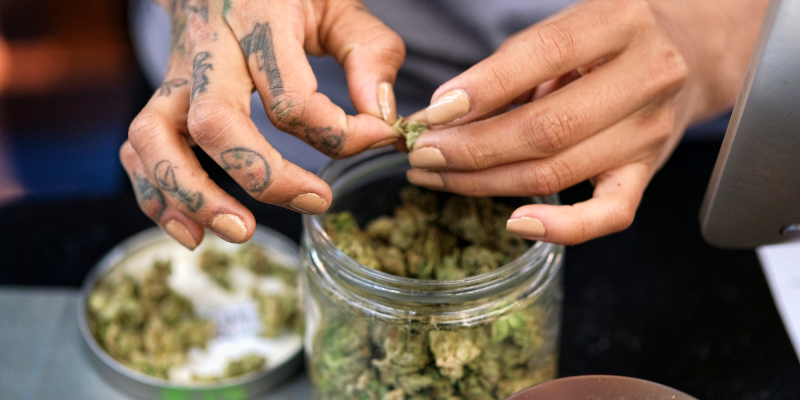
In Colorado, there are more marijuana dispensaries than Starbucks and McDonalds locations combined. The state joined Washington in becoming the first two states to fully legalize the drug in 2012.
Residents and tourists over the age of 21 can buy up to one ounce of marijuana or eight grams of concentrates. Some Colorado counties and cities have passed more restrictive laws.
Maine
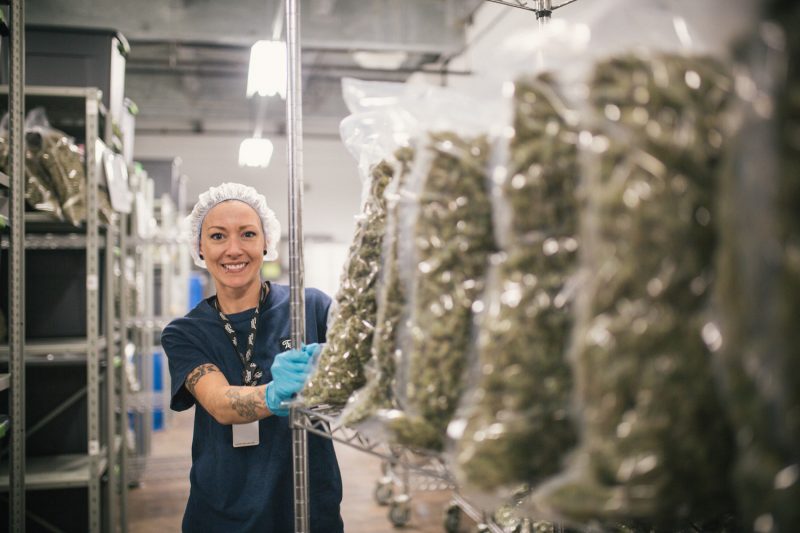
A ballot initiative gave Mainers the right to possess up to 2.5 ounces of marijuana, more than double the limit in most other states. But that doesn't mean residents can buy the drug.
Lawmakers in Maine reached an agreement in May to make the legalization bill law, though Gov. Paul LePage remains an opponent of marijuana legalization. Marijuana dispensaries are expected to open within the state by 2019, The Portland Press Herald reports.
Massachusetts
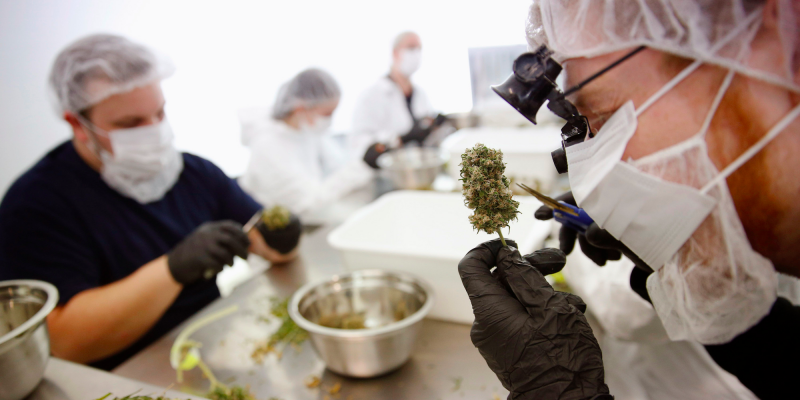
In 2016, Massachusetts gave residents the green light to carry and use an ounce of marijuana and grow up to 12 plants in their homes. But the future of the state's legal market is hazy.
Lawmakers delayed the opening of pot shops to July 2018, instead of the January 2018 date that voters approved in the election. Until then, there will be no sales of recreational weed.
Michigan
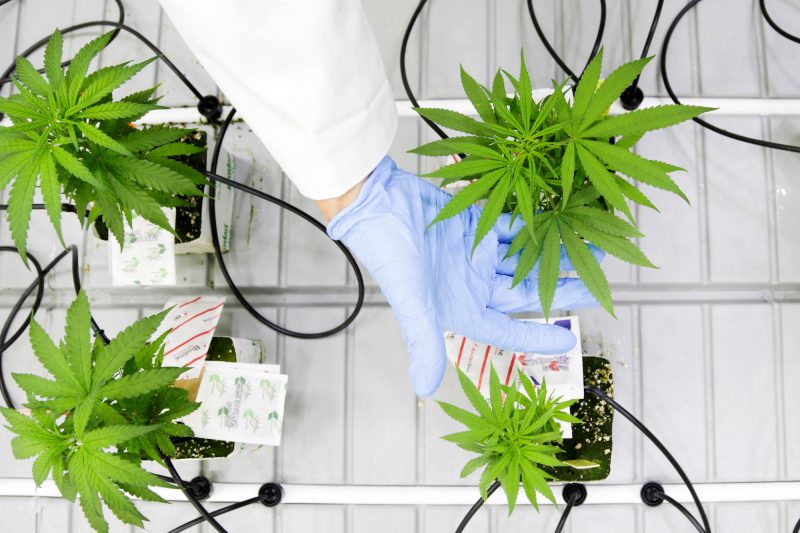
Voters in Michigan passed Proposition 1 on Tuesday, making it the first state in the Midwest to legalize the possession and sale of marijuana for adults over the age of 21. The bill will allow adults to possess up to 2.5 ounces of marijuana and allow residents to grow up to 12 plants at home.
The law is more permissive than other states with legal marijuana: Most allow residents to only possess up to an ounce at a time.
Nevada
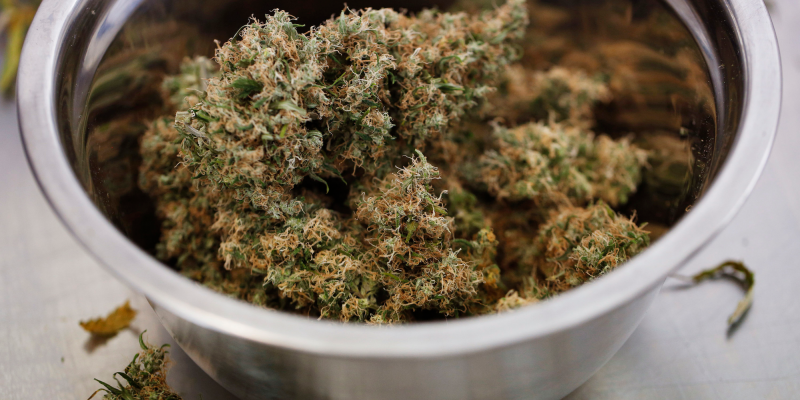
Residents and tourists who are 21 and over can buy an ounce of marijuana or one-eighth of an ounce of edibles or concentrates in Nevada - while supplies last. Less than two weeks after sales of recreational weed began on July 1, 2017, many stores ran out of marijuana to sell.
The state has earned nearly $20 million in marijuana tax revenue since the market launched.
There's bad news if you want to grow your own bud, though. Nevada residents must live 25 miles outside the nearest dispensary in order to be eligible for a grower's license.
Oregon

Oregonians have enjoyed the right to carry an ounce of weed and grow up to four plants at home since 2015. It's also legal to give edibles as a gift, as long as they're ingested in private.
Sales have exploded since legalization. In 2017, the state paid out $85 million in marijuana tax revenue to fund schools, public health initiatives, state police, and local government.
Vermont
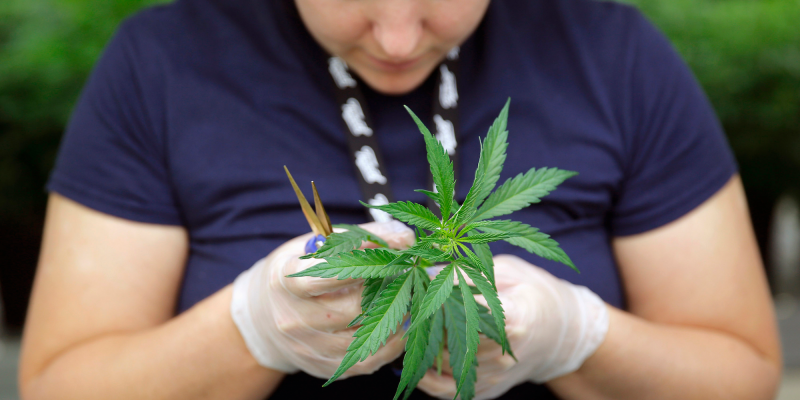
Vermont became the first state to legalize marijuana through the legislature, rather than a ballot initiative, when Republic Governor Phil Scott signed a bill into law on January 22.
Adults in the Green Mountain State will be able to carry up to an ounce of marijuana and grow no more than two plants for recreational use. The new law goes into effect in July. But the bill is limited in scope. It doesn't establish a legal market for production and sale of the drug.
Washington
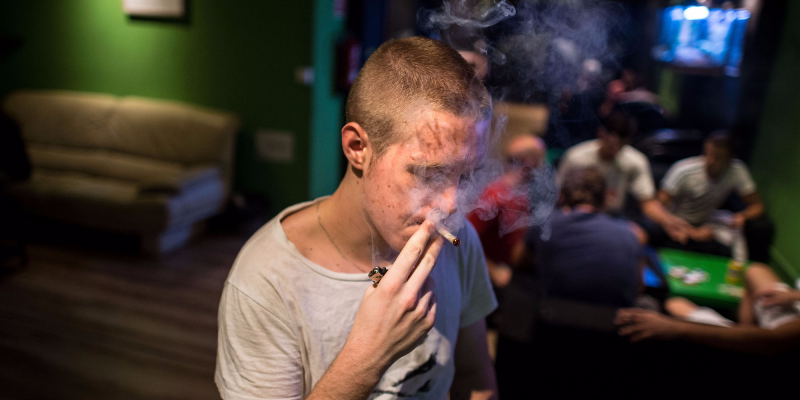
Dispensaries in Washington have raked in over $1 billion in non-medical marijuana sales since the drug was legalized for recreational use in 2012.
The state allows people to carry up to an ounce of marijuana, but they must require the drug for medicinal purposes in order to be eligible for a grower's license. So you can smoke it, but not grow it if you're toking for fun.
Washington, DC

Residents in the nation's capital voted overwhelmingly to legalize nonmedical marijuana in November 2014.
The bill took effect in 2015, allowing people to possess two ounces or less of marijuana and "gift" up to an ounce, if neither money nor goods or services are exchanged.
